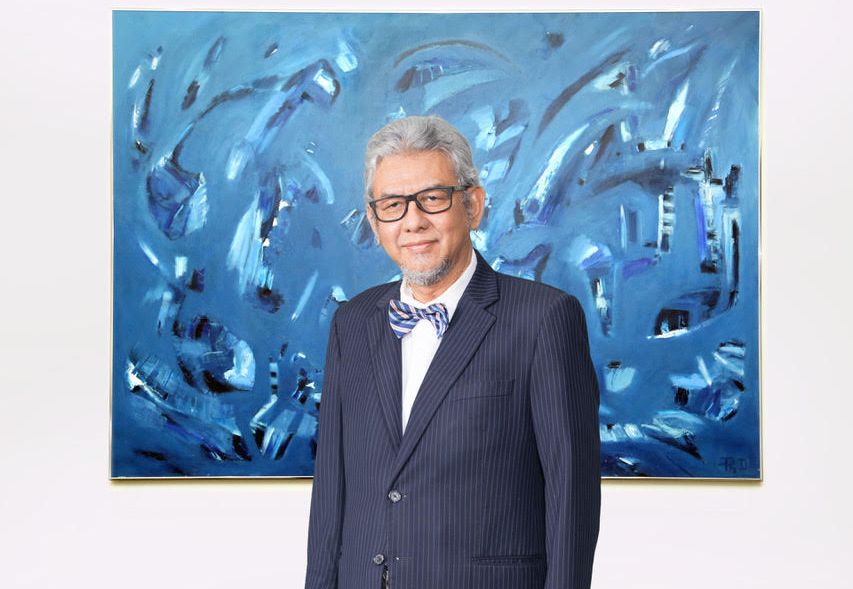KUALA LUMPUR, July 18 – A public health expert has urged all Members of Parliament to support the contentious Tobacco and Smoking Control Bill that proposes a generational ban on tobacco and vape.
Prof Dr Lokman Hakim Sulaiman, who is a former Health deputy director-general (public health), also told political parties to declare any conflict of interest arising from funding by tobacco companies.
Dr Lokman was responding to Muda president and Muar MP Syed Saddiq Syed Abdul Rahman’s three concerns about Health Minister Khairy Jamaluddin’s proposed legislation that seeks to prohibit the sale of cigarettes, tobacco, and vape to anyone born from January 1, 2005. This means that those turning 18 next year or younger would not be permitted to legally buy such products ever in their lifetime.
Syed Saddiq told CodeBlue recently that he may not vote for the Tobacco and Smoking Control Bill because of its impact on small retailers, removal of personal liberties and a slippery slope to racially charged calls for the ban of other products like alcohol, and higher illicit cigarette trade.
“A cursory look shows that these are the same excuses that have always been touted by the tobacco industry,” Dr Lokman, who is pro vice chancellor of research and professor of public health at International Medical University (IMU), wrote on Facebook yesterday.
“So a question arises: is this party supported by the tobacco industry? We would like to see transparency in this matter. The party and party officials must declare any conflict of interest with the tobacco industry.”
Like other established political parties in Malaysia, Muda, a new political party that represents young people, has yet to declare its funding sources. Malaysia does not yet have political financing legislation that mandates federal and state legislators or political parties to publicly name their sources of funding, including for large political contributions.
Syed Saddiq, who is Muda’s sole MP, told CodeBlue that a party official in the party’s disciplinary bureau, who is currently employed by a tobacco company, had no influence over his or Muda’s stand on the tobacco bill.
Firstly, Dr Lokman questioned the size of retailers’ cigarette sales and if small traders would really go bankrupt if they were not permitted to sell tobacco products.
“What is certain is that it is tobacco companies who will go bankrupt when this happens; that’s why they go all out in opposing this [bill] and ‘buying’ influence.”
He also pointed out that the Malaysia-Singapore Coffee Shop Proprietors’ General Association has made frequent statements against the proposed generational tobacco ban, even though tobacco control is much stricter in Singapore that also bans vape.
Secondly, the public health expert said the personal liberty argument was outweighed by the public harm of secondhand smoke on non-smokers, or passive secondary smokers, as he questioned the stand of MPs on individual rights versus public welfare.
Dr Lokman also claimed that the vapour from vaping was dangerous to others, although the United Kingdom’s NHS states there is no evidence so far that vaping causes harm to surrounding people, unlike secondhand smoke from smoking that is known to be very harmful to health.
“In the context of social harmony, are we willing to risk the health of other people for the sake of one’s individual liberty? I don’t even want to debate one’s moral right to impact the health care system because of the health burden imposed by their bad habit.”
On the slippery slope argument, the IMU public health professor said even though this was a “remote possibility”, he questioned what was the problem if public safety superseded individual freedom.
“In Islam, alcohol is prohibited, so will it be a problem to a person of faith?” he said.
“However, I do not think that it is possible to completely ban alcohol in Malaysia because we respect the culture (note that I am not using the term ‘religion’) of various ethnicities. What is certain is that all ethnicities and faiths completely support the prohibition on driving under the influence.”
Dr Lokman responded to Syed Saddiq’s third concern on the cigarette black market, pointing out that this argument has always been raised by the tobacco industry, particularly near the tabling of the yearly federal government budget.
Malaysia’s excise tax on cigarettes was last raised in 2015, by 40 per cent. The tobacco industry claimed that this drove up the prevalence of illicit cigarettes in Malaysia – the biggest market of illegal cigarettes – to a peak of 63.8 per cent in 2020, before falling to 57.9 per cent in May 2021.
“The reality is that during the time when taxes were not raised, as far as I remember, the tobacco industry increased prices twice! Was the tobacco industry not concerned with smuggling then? So they oppose a hike in excise taxes, but unilaterally increased the price of cigarettes. Who’s the clever one here?” said Dr Lokman.
The public health expert also responded to Bintulu MP Tiong King Sing, a government backbencher and president of Sarawak’s PDP who opposes smoking prohibitions for the next generation as he favours public education instead.
“If that’s the case, then let’s repeal all legislations related to harmful personal behaviour (speeding, littering etc) and just educate Malaysians instead,” Dr Lokman said.
“Let’s see what happens to our country. Legislation plays a role in supporting behavioural change and this is what is intended [by the tobacco bill].”
Dr Lokman urged Malaysians to vote for political parties that “uphold the people’s welfare”, saying that Khairy’s touted “generation end game” to smoking would protect the health of future generations.
The Tobacco and Smoking Control Bill is not listed on today’s Dewan Rakyat order paper. Khairy said he would table it sometime in the current Dewan Rakyat meeting after the proposed legislation received Cabinet approval last Wednesday.








